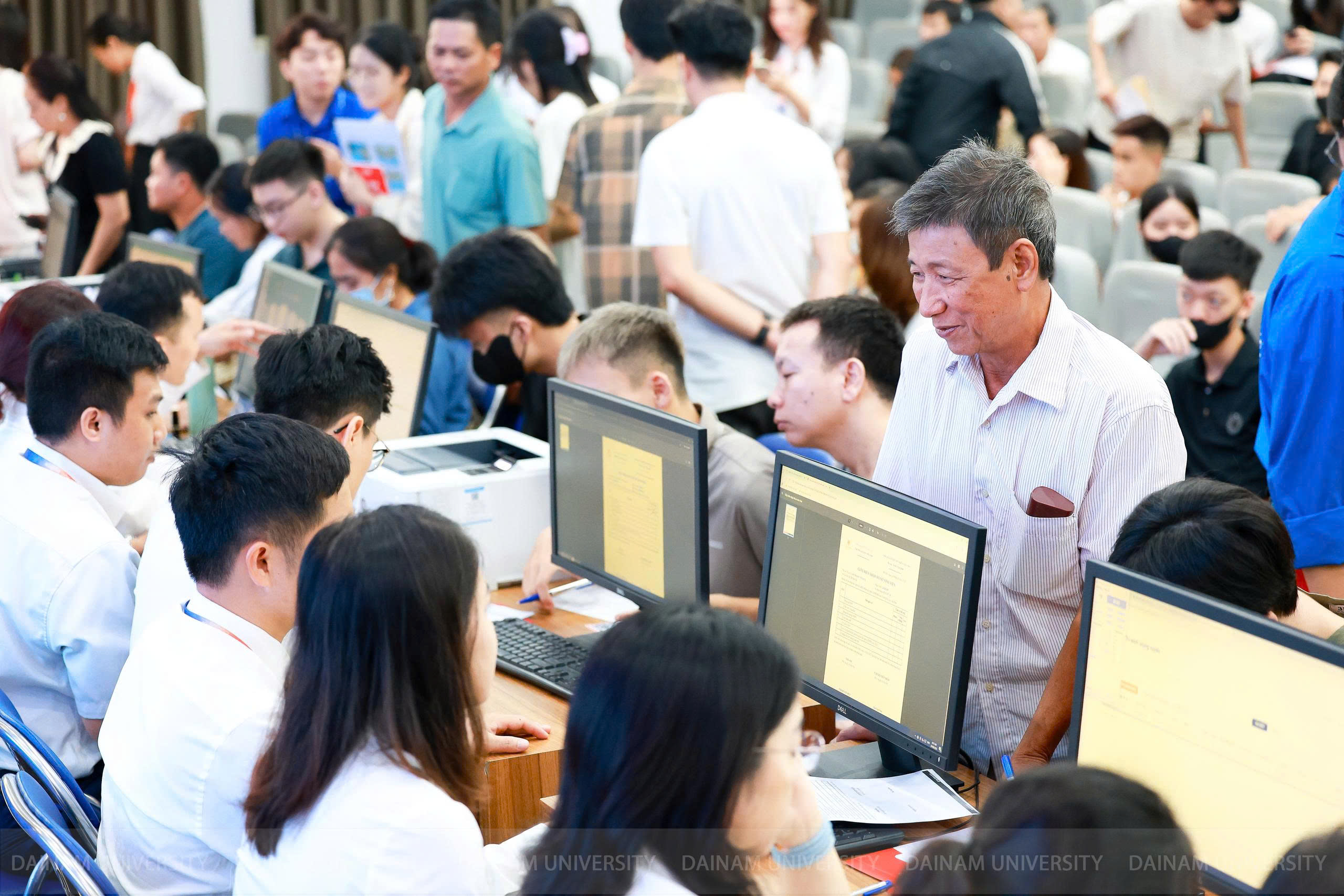Developing the private economy becomes an important driving force of the economy.

In the Resolution of the 13th National Party Congress, many new viewpoints and orientations in state economic management were mentioned. In particular, for the first time, the Resolution of the Party Congress mentioned the requirement to develop a strong Vietnamese business force, in addition to the requirement to restructure state-owned enterprises and strengthen the connection between domestic enterprises and foreign direct investment enterprises (FDI). This requires innovation and breakthroughs in bottlenecks that are hindering development, thereby liberating production capacity and social resources to promote the private economy, meeting the country's new development requirements after the 13th Congress.
The Party's viewpoint on private economic development is increasingly clear, along with general policies and specific policies issued in recent times, which have had a positive impact on the development of the private economy. During the period 2001 - 2016, the private economy has continuously developed, making an increasingly large contribution to the country's socio-economic development. Private enterprises have developed in most industries, fields and regions, the number of private enterprises has increased rapidly, from 55,236 enterprises in 2002 to about 500,000 enterprises with many diverse types by 2016.
1. About the number of enterprises and workers
The number of newly established enterprises has exceeded 100 thousand enterprises/year. By the end of 2018, the number of business establishments in the private economic sector (including private enterprises and individual business households) was about 6 million units, about 700 thousand enterprises. On average, in the period 2011-2018, the number of business establishments increased by 3.4% per year. Considering the enterprise sector alone, the proportion of non-state (private) enterprises accounted for about 96-97% of the total number of enterprises in the period 2010-2018 and this proportion is forecast to be maintained in 2019 and 2020. Meanwhile, the number of individual business households increased from more than 4.12 million in 2010 to over 5.14 million in 2018, an average increase of 3.25%/year over the whole period.
The average number of enterprises per 1,000 people continuously increased in the period 2010-2018, from 3.2 enterprises (2010) to 7.6 enterprises/1,000 people (2018).
According to the General Statistics Office, the total number of workers aged 15 and over working in the non-state economic sector (NSE) in 2018 was about 45.19 million people, accounting for 83.3% of the total number of workers aged 15 and over working in the economy (about 54.25 million people). The proportion of workers working in the NSE sector in the total number of workers over 15 years old working in the economy in the period 2010-2018 fluctuated from 83.3-86.3%. In the business sector alone (including enterprises and business households), in 2017 the total number of workers working in this sector was about 23.2 million people (including 14.5 million people in enterprises and more than 8.7 million people in the business household sector).
The efficiency and competitiveness of the private economy have gradually improved, contributing about 39-40% to GDP. The private economic sector also accounts for over 85% of the economy's working workforce; attracting a large amount of capital from the economy for investment, production and business development. The group of entrepreneurs is growing stronger, with the desire to become rich legitimately, constantly improving business capacity and corporate governance. The social responsibility of enterprises, ethics and business culture of entrepreneurs are gradually improved.
If we want the economy to develop, we must fully operate the market mechanism; the market is the most effective resource allocation mechanism; if we want the market to operate effectively, we must remove barriers and promote competition... are some of these thinking frameworks.
The socio-economic development strategy for the 2011-2020 period sets the goal of turning Vietnam into a modern industrialized country. However, the question is why has our country not yet become a "tiger" or a "dragon" like the Northeast Asian countries?
There are many reasons, but the most basic one is that we have not focused on promoting industrialization through private enterprises like in Japan and South Korea. Another basic reason is that we have not had a professional and talented administrative and civil service apparatus to realize the industrialization program.
2. Contribution of private economy
- Contribution to GDP: In the period 2010-2018, the contribution to GDP of the state-owned economic sector (including the private and collective economic sectors) accounted for the largest proportion, about 43%, of which the private economic sector accounted for 38% - 40.6%. The state-owned economic sector and the foreign-invested sector in the same period accounted for 27.7% - 29.4% and 15.15% - 20.3%, respectively.
In terms of contribution to GDP growth rate, the growth rate of the state-owned economic sector in GDP was higher than the overall growth rate of the economy in the period 2010-2012. However, this rate was lower than the overall growth rate in the period 2013-2017.
- Contribution to the state budget: The state economic sector has an increasing proportion in the period from 2010 to 2017, from 28.3% (2010) to 33.2% (2016). The foreign-invested enterprise sector has an increasing contribution to the state budget revenue structure, from 26.3% (2010) to 34.4% (2016) and is currently the sector with the highest contribution. Meanwhile, the contribution to the state budget of the state economic sector has decreased quite rapidly, from 45.4% (2010) to only 32.3% and is the sector with the lowest proportion.
3. Solutions for private economic development
Firstly, continue to effectively implement the tasks and solutions on developing the private economy set out in Resolution No. 10-NQ/TW dated June 3, 2017 of the 5th Conference of the Party Central Committee (12th tenure) on developing the private economy to become a driving force of the socialist-oriented market economy and the regulations and policy documents specifying this Resolution. Specifically:
- Continue to promote institutional reform, especially perfecting the legal framework and policies on the establishment, organization and operation of business organizations, especially enterprises, through amending and supplementing legal documents such as: Law on Enterprises (amended), Law on Investment (amended), Law on Tax Administration, Labor Code (amended), Land Law (amended)... and guiding documents to ensure consistency, specificity and transparency; high feasibility and ease of implementation.
- Effectively implement the provisions of the Law on Support for Small and Medium Enterprises and guiding documents, especially continue to resolutely implement Resolution No. 35/NQ-CP, Resolution on improving the business environment, enhancing the competitiveness of enterprises; Resolution on cutting costs for enterprises (No. 139/NQ-CP dated November 9, 2018 of the Government); Review and minimize administrative procedures and business investment conditions to ensure maintaining trust and increasing sustainable business investment.
Second, promote startups, focusing on creative startups in some industries with advantages and potential; create an equal business environment between new business models and traditional economies by reviewing and abolishing regulations on business conditions that are not suitable for traditional business sectors; build a pilot institutional framework for new business models in some sectors with high potential risks.
Third, enhance the effectiveness of implementing e-Government and the national single window mechanism; encourage enterprises to apply science and technology, exploiting opportunities of the 4.0 Industrial Revolution.
Fourth, research to have regulations and policies to encourage and support the private economy to participate in development cooperation, especially in public investment projects; promptly promulgate the Law on Investment under the public-private partnership method and documents guiding its implementation.
Institute of Postgraduate Training
References:
1. Resolution No. 10-NQ/TW dated June 3, 2017 of the 5th Conference of the Party Central Committee (12th tenure) on developing the private economy into an important driving force of the market-oriented economy;
2. Resolution No. 98/NQ-CP dated October 3, 2017 of the Government promulgating the Government's Action Program to implement Resolution No. 10-NQ/TW dated June 3, 2017 of the 5th Conference of the Central Executive Committee of the Party (term XII) on developing the private economy into an important driving force of the socialist-oriented market economy;
3. Decision No. 1362/QD-TTg dated October 11, 2019 of the Prime Minister approving the plan for sustainable development of the private economy to 2025, with a vision to 2030;
4. Vu Dinh Anh (2019), Private economic sector in Vietnam's market economy, Banking Magazine, Special Issue 2019;
5. OECD (2016), Private Sector Engagement for Sustainable Development: Lessons from the DAC, OECD Publishing.
6. Article published in Finance Magazine, Issue 1+2 – January 2020 Creating motivation and confidence for private economic development
Register for admission consultation 2025
scholarships and tuition support worth up to 55 billion VND

scholarships and tuition support worth up to 55 billion VND






